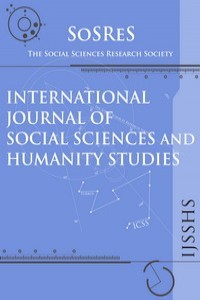LOCAL INTEGRATION AS A DURABLE SOLUTION FOR REFUGEES IN SOUTH AFRICA
LOCAL INTEGRATION AS A DURABLE SOLUTION FOR REFUGEES IN SOUTH AFRICA
___
- CB Bolanga v Refugee Status Determination Officer and Others Case No: /2012 (24 February 2015)
- Chirume, J “PE remains closed in defiance to court order”. Available at http://www.groundup.org.za/article/home-affairs-buying-time-spite-court-order/ (retrieved on 3 June 2016)
- Constitution of the Republic of South Africa, 1996
- Convention governing the specific aspects of refugee problems in Africa (1969)
- Convention relating to the status of refugees (1951)
- Crisp, J. (2004). “The local integration and local settlement of refugees: a conceptual and historical analysis” Working Paper No 102 New issues in refugee research 1 - 8
- De Jager, J. (2015). “The right of asylum-seekers and refugees in South Africa to self-employment: A comment on Somali Association of South Africa v Limpopo
- Department of Economic Development, Environment and Tourism” SAJHR, 31, 409 Declaration on the World Conference Against Racism, Racial Discrimination, Xenophobia and Related Intolerance (Durban, 2001)
- Evans, S “Concourt dismisses home affairs PE refugee office appeal”. Available at unlawful (retrieved on 3 June 2016)
- Fielden, A. & Crisp, J. (2008) “Local integration: reviewing a forgotten solution” FMR, 30, 78 – http://www.fmreview.org/sites/fmr/files/FMRdownloads/en/FMRpdfs/FMR30/78- pdf (retrieved on 13 June 2016)
- Handmaker, J. (2002). “No easy walk: advancing refugee protection in South
- Africa” Africa Today 1 - 28
- Harerimana v Chairperson, Refugee Appeal Board and Others 2014 5 SA 550 (WCC)
- Hoexter, C. 2012 Administrative law in South Africa 2nd ed. Cape Town: Juta & Co, Ltd
- Immigration Act 13 of 2002
- Jacobsen, K. (2001). “Can refugees benefit the state? Refugee resources and African state building” The Journal of Modern African Studies, 40(4), 577 – 596
- Jacobsen, K. (2001). “The forgotten solution: local integration for refugees in developing countries” Working paper No 45: New issues in refugee research 1
- Katz, A. “Refugees” in J Dugard 3rd ed. International law a South African perspective. Lansdowne: Juta & Co, Ltd (2005) 341 – 353
- Kavuro, C. (2015). “Refugees and asylum seekers: barriers to accessing South
- African’s labour market” Law, Democracy & Development, 19, 232 - 260
- Kleinsmidt, V & Manicom, D. (2010). “A policy analysis of the Refugees Act 130 of 1998” Africa insight, 39, 164 - 183
- Low, A. (2005) Local integration: a durable solution for refugees. FMR (25) 64 – Available at http://www.fmreview.org/sites/fmr/files/FMRdownloads/en/FMRpdfs/FMR25/F
- MR2538.pdf (retrieved on 11 June 2016)
- Merheb, N. at al. The state of the world’s refugees. Human displacement in the new millennium. Oxford: Oxford University press (2006)
- Minister of Home Affairs and Other v Somali Association of South Africa and Another 2015 3 SA 545 (SCA) Available at
- Başlangıç: 2009
- Yayıncı: Sosyal Bilimler Araştırmaları Derneği
ANTI-FRAUD TRAINING IN THE SOUTH AFRICAN POLICE SERVICE (SAPS): A STRATEGIC PERSPECTIVE
RETENTION OF EDUCATORS: THE ROLE OF LEADERSHIP, EMPOWERMENT AND WORK ENGAGEMENT
C. M. Mbajiorgu, A. A. Asha, S. O. Mmusi
EXPLORING THE ASSOCIATION BETWEEN COMMUNITY COHESION AND CRIME IN THE REPUBLIC OF SOUTH AFRICA
